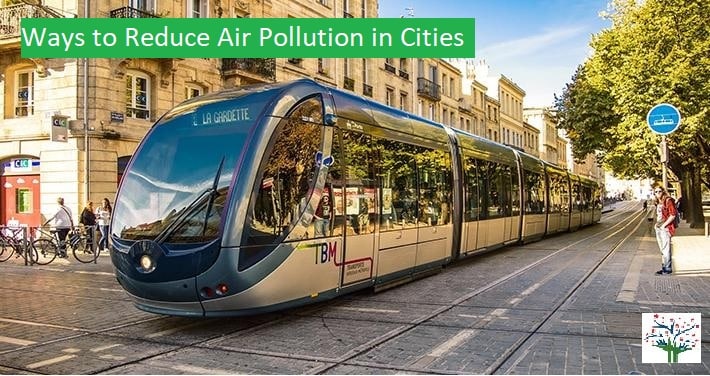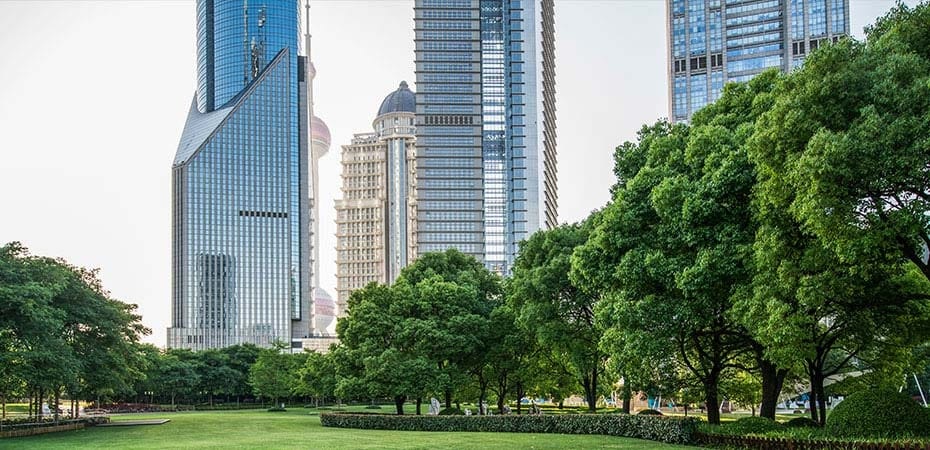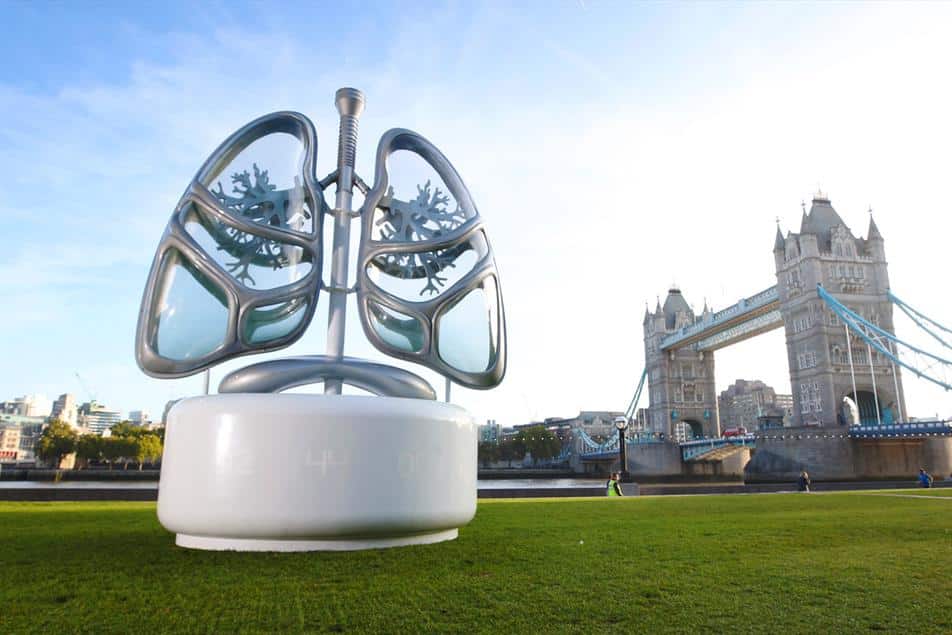Ways to Reduce Air Pollution in Cities
Ways to Reduce Air Pollution in Cities are using Public transportation, Control emissions from industries, Promote Green Spaces & Electric vehicles.
Air pollution is a major problem affecting cities worldwide. The concentration of harmful pollutants in cities poses serious health risks for living beings and contributes to environmental degradation.
Luckily, there are multiple strategies and measures that can be implemented to reduce air pollution and create cleaner, healthier cities.
In this article, we will explore some ways to reduce air pollution and promote sustainable living in metropolitan environments.
Encourage Sustainable / Public Transportation
One of the major contributors to air pollution in cities is vehicular emissions. In urban cities due to importance of time people choose to travel from their personal vehicle than public transport.
Encouraging the use of sustainable transportation options can significantly reduce pollution levels.
Investing in public transportation systems, promoting cycling infrastructure, and incentivizing the use of electric vehicles can all play a important role in reducing air pollution.
Carpooling and ride-sharing initiatives can help reduce the number of vehicles on the road, leading to improved air quality.

Enhance Industrial Emission Controls
Industries often emit large number of pollutants into the environment. Implementing stricter emission control regulations and standards for industrial activities can help mitigate the impact of these emissions.
Encouraging the adoption of cleaner technologies, such as the use of scrubbers and filters, can significantly reduce the release of harmful pollutants. Regular Environmental monitoring and enforcement of emission standards are vital to ensure compliance and protect air quality in urban areas.
Promote Sustainable Construction Practices
Encourage sustainable construction practices that minimize dust and emissions during building projects. Implement measures to control construction dust, such as using water sprays, covering construction sites, and properly managing construction waste.
Promote Energy Efficiency
Energy production and consumption are major contributors to air pollution. Promoting energy efficiency measures can help reduce emissions from power plants and residential buildings.
Encouraging the use of energy-efficient appliances, promoting renewable energy sources, and implementing building codes that prioritize energy efficiency can all contribute to reducing air pollution in cities.
By adopting sustainable energy practices, we can not only improve air quality but also reduce greenhouse gas emissions and combat climate change.
Implement Green Spaces and Urban Planning
Green spaces, such as parks and gardens, play a vital role in mitigating air pollution in cities. Trees and plants act as natural air filters, absorbing pollutants and releasing oxygen. Incorporating green spaces into urban planning initiatives can help create a healthier urban environment.

Furthermore, urban planners can prioritize the development of pedestrian-friendly zones and promote mixed-use developments, reducing the need for extensive vehicular transportation and improving air quality in city centres.
Improve Vehicle Efficiency – Ways to Reduce Air Pollution in Cities
Implement stricter emission standards for vehicles and support the adoption of cleaner technologies. Incentivize the use of electric and hybrid vehicles, and promote the development of charging infrastructure.
Encourage regular vehicle maintenance to ensure optimal performance and reduced emissions.
Raise Awareness and Educate
Public awareness and education are key elements in the fight against air pollution. Informing citizens about the health risks associated with air pollution and the actions they can take to reduce it can drive positive change.

Educational campaigns, workshops, and community engagement programs can help raise awareness about sustainable living practices and encourage individuals to make environmentally conscious choices.
By empowering citizens with knowledge, we can foster a collective responsibility towards reducing air pollution.
Strengthen Waste Management Practices
Improper waste management contributes to air pollution through the release of toxic gases and the burning of waste.
Implementing effective waste management systems, including recycling programs, waste segregation, and controlled waste disposal facilities, can help minimize pollution from solid waste.
Encouraging composting and reducing single-use plastics can also contribute to reducing waste and, subsequently, air pollution.
Collaborate and Advocate for Change
Addressing air pollution requires collaboration among various stakeholders, including government bodies, organizations, businesses, and citizens.
Advocacy groups can play a crucial role in driving policy changes and promoting sustainable practices.
By working together, sharing knowledge and resources, and advocating for stricter regulations, we can create a collective impact in reducing air pollution in cities.
Implement Air Quality Monitoring
Develop comprehensive air quality monitoring networks to track pollution levels in real-time. Install monitoring stations throughout the city to gather data on various pollutants.
This information can guide decision-making, help identify pollution hotspots, and evaluate the effectiveness of pollution control measures.
Perfect Pollucon Services can help companies implement Air Quality Monitoring. Our Expert staff and advanced technology takes care of Air Quality Monitoring end to end.
Reducing air pollution in cities is a complex challenge that requires a multi-faceted approach. By implementing sustainable transportation options, enhancing industrial emission controls, promoting energy efficiency, integrating green spaces, raising awareness, strengthening waste management practices, and fostering collaboration, cities can make significant strides in improving air quality.
It is our collective responsibility to prioritize the health and well-being of urban populations by taking action against air pollution and creating cleaner, more liveable cities for generations to come.
